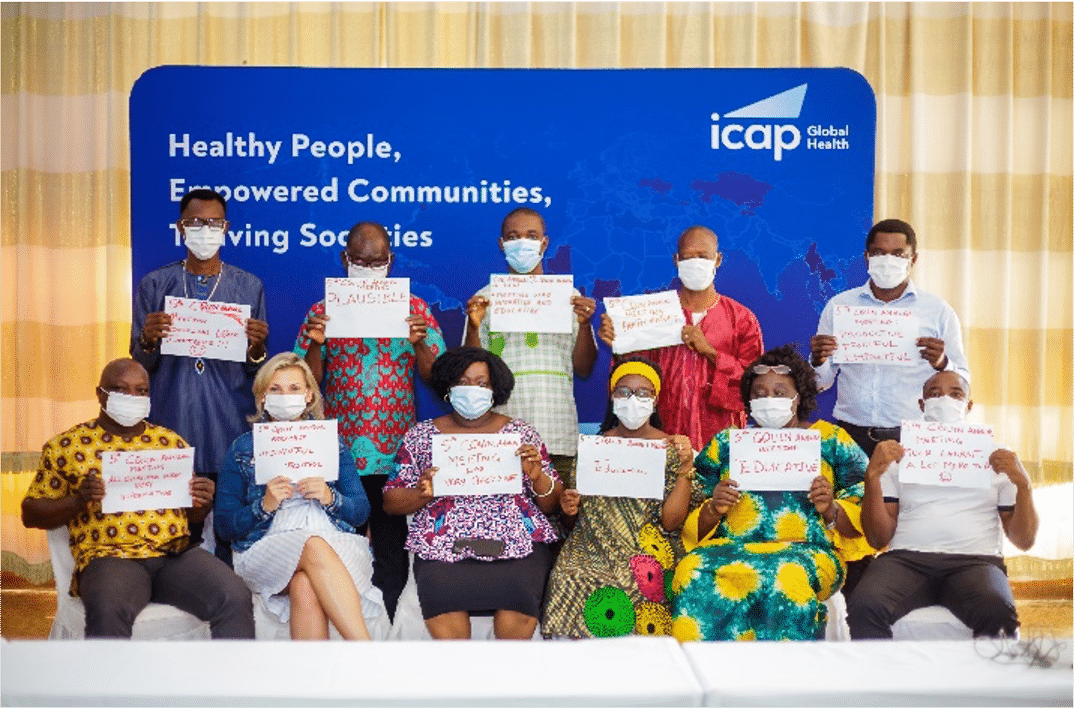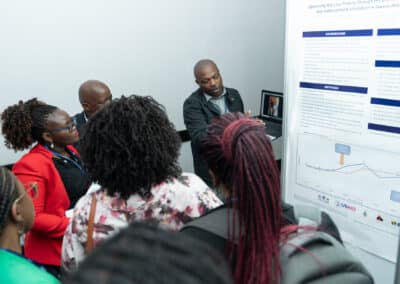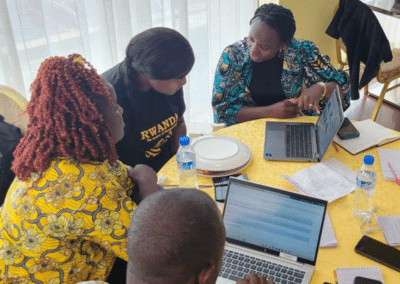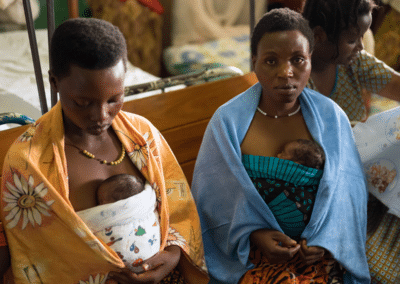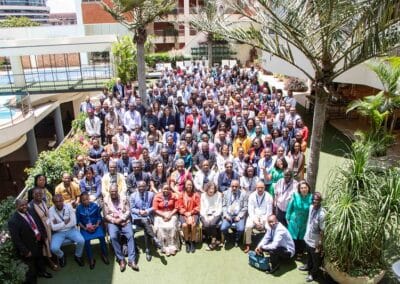Ghana grabbed Sierra Leone’s attention at the 5th CQUIN annual meeting by sharing its strategy of using community engagement to support the continuum of HIV care amid the ongoing COVID-19 global pandemic.
During the differentiated service delivery (DSD) country update sessions at the meeting, the Sierra Leonean participants were captivated by Ghana’s innovations with its community antiretroviral therapy (ART) dispensing model. “In Ghana, we are implementing individual community ART dispensing through peer educators, such as mentor mothers,” said Akosua Baddoo, MD, program officer and head of clinical care for the National AIDS/STI Control Program (NACP) in Ghana. Baddoo explained that the ministry of health partners with people living with HIV who offer support to other recipients of care by helping to distribute their medication to reduce stigma in the communities. “Through DSD monitoring meeting engagements with recipients of care, we have learned that this ART distribution is working well, the feedback has been positive,” Badoo said.
“This is what Sierra Leone needs,” said Serah Sidique, MPH, program coordinator at Labyrinth Global Health, one of the stakeholder representatives invited to participate in the Sierra Leone CQUIN watch meeting. “Involving recipients of care and maintaining a robust community engagement in our HIV response will address not only challenges of denial and stigmatization of patients, but also capacity building gaps for both health care workers and the clients,” she said.
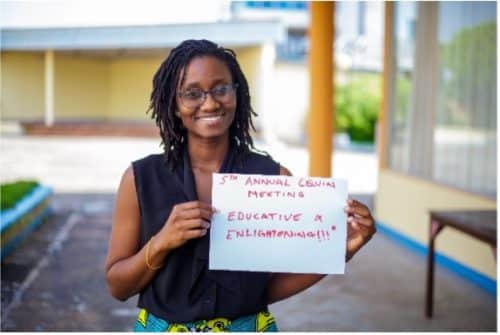
Serah Sidique Program Coordinator Labyrinth Global Health, Sierra Leone
Sierra Leone’s participation in the CQUIN Network has been an excellent opportunity to learn from other countries in similar resource settings to improve HIV response and achieve epidemic control and global targets. The Sierra Leone team was also interested in how the Eswatini Ministry of Health has overcome challenges with data monitoring and evaluation of DSD programs.
The COVID-19 pandemic saw Sierra Leone introduce and accelerate various DSD models such as community multi-month drug dispensing (MMD). Currently, Sierra Leone is working on its DSD operational guide with technical support from ICAP’s CQUIN team, including developing quality standards and job aids, and adapting the national monitoring and evaluation data collection tool to capture key information, including about MMD.
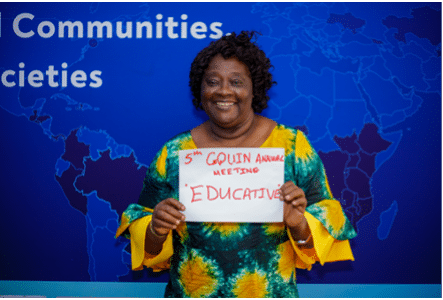
Marie Benjamin Executive Director Society for Women and AIDS in Africa in Sierra Leone
“One thing I like about DSD is its focus on addressing the individual needs of clients for the overall achievement of retention in care,” said Marie Benjamin, executive director at the Society for Women and AIDS in Africa in Sierra Leone. With the active involvement of recipients of care, Sierra Leone can achieve not only the action plans developed at the 5th annual meeting, but also reach the three 95’s in years to come.”

Idrissa Songo Executive Director Network of HIV Positives in Sierra Leone
“I applaud CQUIN for putting recipients of care at the center of every discussion. That is something Sierra Leone needs to replicate,” said Idrissa Songo, executive director for the Network of HIV Positives in Sierra Leone (NETHIPS). “As a civil society organization, we must collectively play our part to make sure we achieve all that we have agreed to in our action plan so we can meet our proposed targets for 2022 as a country,” he said. As part of its priorities for 2022, Sierra Leone plans to make its DSD models more inclusive for key populations and other priority populations and improve ART coverage for recipients of care.


